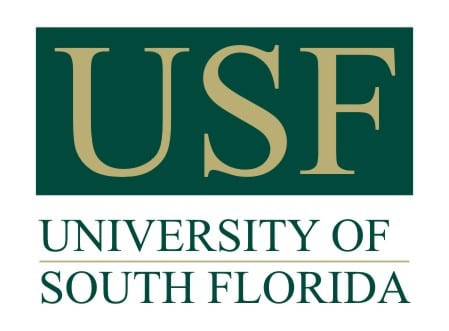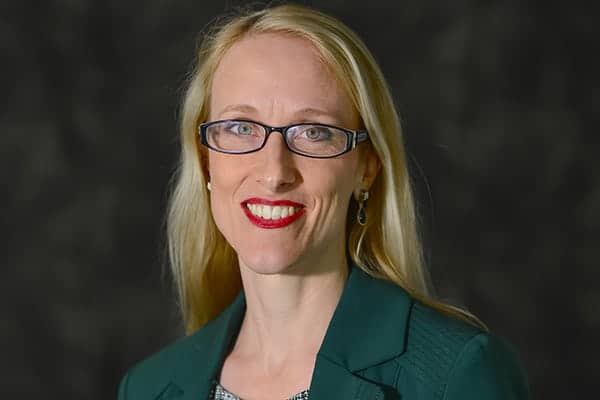This is the ninth installment in our series, “Trailblazing Genetic Counselors”, in which we highlight genetic counselors who are pioneers in the field. Genetic counselors are health professionals with specialized graduate degrees and experience in the areas of medical genetics and counseling. Genetic counseling is a rapidly growing field offering professionals a wide range of opportunities, which we explore in this series. Learn more on the National Society of Genetic Counselors’ new website, aboutgeneticcounselors.com.
To keep updated with conversations and news in genetic counseling you can subscribe to our Twitter list featuring the latest updates from over 380 professionals in the field, all in one stream.
In this episode, we highlight Part I of Program Directors of new genetic counseling graduate programs. Additional training programs are greatly needed to meet the ever-increasing demand for genetic counselors. According to the U.S. Bureau of Labor and Statistics, the projected growth of the field between 2014 and 2024 is 29%. That’s a huge increase compared to the 7% average growth rate for occupations overall.

Florida has far fewer genetic counselors per capita than the other 10 most populous states. The development of University of South Florida’s (USF) genetic counseling program was “primarily driven by this demand for more genetic counselors in Florida and a significant need to improve genetics/genomics education at USF” according to the program director, Deborah Cragun, PhD, MS, CGC. The rate-limiting factor for the four-student class size is this low number of genetic counselors in the area. However, there is a local site for students to complete clinical rotations on-campus through the Division of Genetics.

Photo credit: usf.edu
The program has also received support from genetic counselors across Florida, allowing students to travel for their clinical rotations to sites like Moffitt Cancer Center, Integrated Genetics, and Orlando Health. “Support from practicing genetic counselors in the state is a key strength of our program and we greatly appreciate their willingness to help train the next generation of genetic counselors.” Cragun comments, “As the number of active genetic counselors in the state increases, so will our program size.” Clinical rotations are treated with a gradual-release method with students observing first, then slowly taking on new roles like drawing pedigrees, gathering medical records, and completing paperwork for genetic testing.
Most genetic counseling programs offer a Master of Science in human genetics or genetic counseling. USF’s genetic counseling program is instead integrated within the College of Public Health. Students earn a Master of Science in Public Health (MSPH) with a concentration in genetic counseling. Cragun shares her insight on the benefits of this different style, “This novel MSPH curriculum provides our students with a broader healthcare and behavioral health perspective that we believe delivers added value as scientists learn more about the complex interactions between genetic, environmental and behavioral risk factors and as genetics becomes infused into more aspects of health care and disease prevention”.
Cragun also offers her advice to students in the application process, “We look for students who have made an authentic choice to apply for admission into our genetic counseling program. Whether discussing counseling, shadowing, leadership, or research experience, the strongest candidates are distinguished by their ability to articulate, in writing and during their interview, a commitment to the experience and its contribution toward their future career as a genetic counselor.”
The program’s inaugural class of four students begins in August 2017. To learn more about the program, visit their website.

In 2012, Indiana State University (ISU) created The Center for Genomic Advocacy (TCGA) with the goal of advancing research, education, and a genomic advocates community. Striving to accomplish these goals TCGA developed ISU’s genetic counseling program.

Photo credit: indstate.edu
When Megan Tucker, MS, LCGC, was approached about the Program Director opening she was “very excited and a little overwhelmed”. She has always enjoyed teaching; within five years of becoming a certified genetic counselor, she set a goal of becoming a genetic counseling program director. Her first year in the new role was spent “working with the faculty and leadership at ISU to finalize our accreditation application, build the content of courses, and identify clinical rotation sites.” One of the largest difficulties Tucker has experienced was identifying clinical rotation sites, “Our local city does not have a strong foundation of genetic counseling services; in fact, there are no genetic counselors within 50 miles. Therefore, we had to design a curriculum that would allow students to travel great distances for their rotations. I have reached out to hundreds of genetic counselors seeking sites that can accommodate students. With so many clinics understaffed, that was and continues to be a significant hurdle.”
This obstacle, however, has created a unique aspect of ISU’s program, their affiliation with over 30 different institutions across the country. Local locations in Indiana include Peyton Manning Children’s Hospital, Parkview Hospital, Beacon Medical Group, Deaconess Women’s Hospital, and St. Joseph Health System. Out of state sites reside in Illinois, Kentucky, Tennessee, Wisconsin, Virginia, Arizona, California and South Dakota. ISU’s first eight genetic counseling students finished their first year on campus in May, and are now gaining experience in their two summer clinical rotations. During the second year, students continue their experience with two clinical rotations per semester accompanied by online coursework. Within these clinical rotations, students are exposed to a variety of specialties including general genetics, pediatrics, oncology, prenatal, cardiology, industry, and other specialty clinics.
Another interesting feature of the program is their use of patient simulations. “We have access to the Rural Health Innovative Collaboration (RHIC) which allows for actors to be training and brought in as ‘patients’” Tucker explains, “All sessions are audio and video recorded to allow for discussion afterwards. This is a fantastic opportunity for us to see students in the same situation AND removes some of the pressure that a student might say something ‘wrong’ that could ultimately harm a patient.”
Visit the program’s website for additional information.

Quinn Stein, MS, LCGC and colleagues Gene Hoyme , Jay Flanagan and Casey Reismer, founded Augustana University’s genetic counseling program. Stein explains “there were a confluence of factors that motivated us to start a program, but 2013 was the year when we went from ‘should we start a program?’ to ‘we should start a program’.” A major aspect that contributed to this decision was the potential clinical training partnership with Sanford Health. In January 2014, this future partnership received a major boost when “Denny Sanford, a generous philanthropist, gave $125 to Sanford to establish Imagenetics. Imagenetics is not only intended to bring genetics (and genetic counselors) into primary care, but also contains research and educational components including starting a genetic counseling training program.”

Photo credit: sanfordhealth.org
Stein has also been closely following trends in the job market, “while we weren’t having trouble recruiting good people to work with us in South Dakota, I was beginning to notice that the list of jobs on the NSGC job postings board was growing longer and longer. It appeared the job market would be strong for the foreseeable future and that we would be serving a regional and national need.”
Serving as the Program Director was not a role Stein expected, “I had never intended to be the program director, only to ensure a program director could be successful in forging ahead and implementing their plan with adequate support. To fast forward, however, I feel quite fortunate to not only be a program director, but to be the director for this program.” Stein has nearly two decades of clinical experience as a genetic counselor at Sanford Health. He also has some institutional leadership experience through Sanford, but the educational accreditation process was new to him.
In the fall of 2016, Augustana’s genetic counseling program welcomed its first class of eight students. The full-time, two-year program is the only one in South Dakota. Student’s first year has an in-class academic focus that shifts to a richer clinical experience in their second year. During the first year all students are placed in Sioux Falls, South Dakota, whereas the second year students train in either Sioux Falls or San Diego, California. Learn more about Augustana’s program through their website and brochure.
Interested to hear about more brand-new genetic counseling programs? Stay tuned for Part II in our next episode, in the meantime read our previous episodes here!
Want to recommend a genetic counselor that deserves the title of Trailblazing Genetic Counselor? Tweet us at @mygenecounsel or email at ellen@wordpress-643246-2098057.cloudwaysapps.com!

